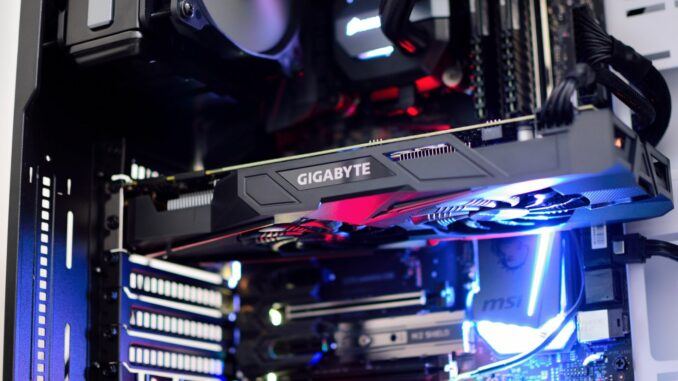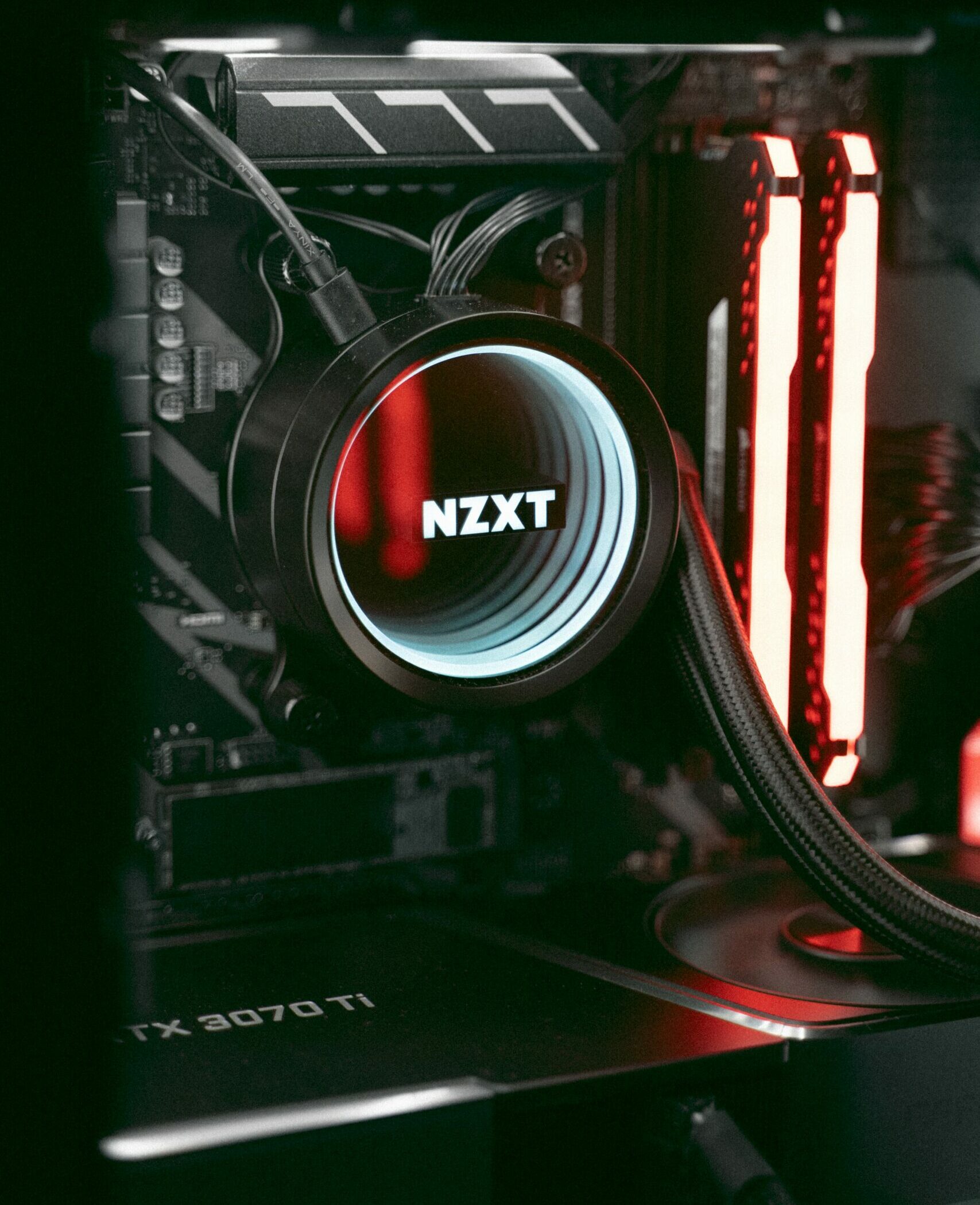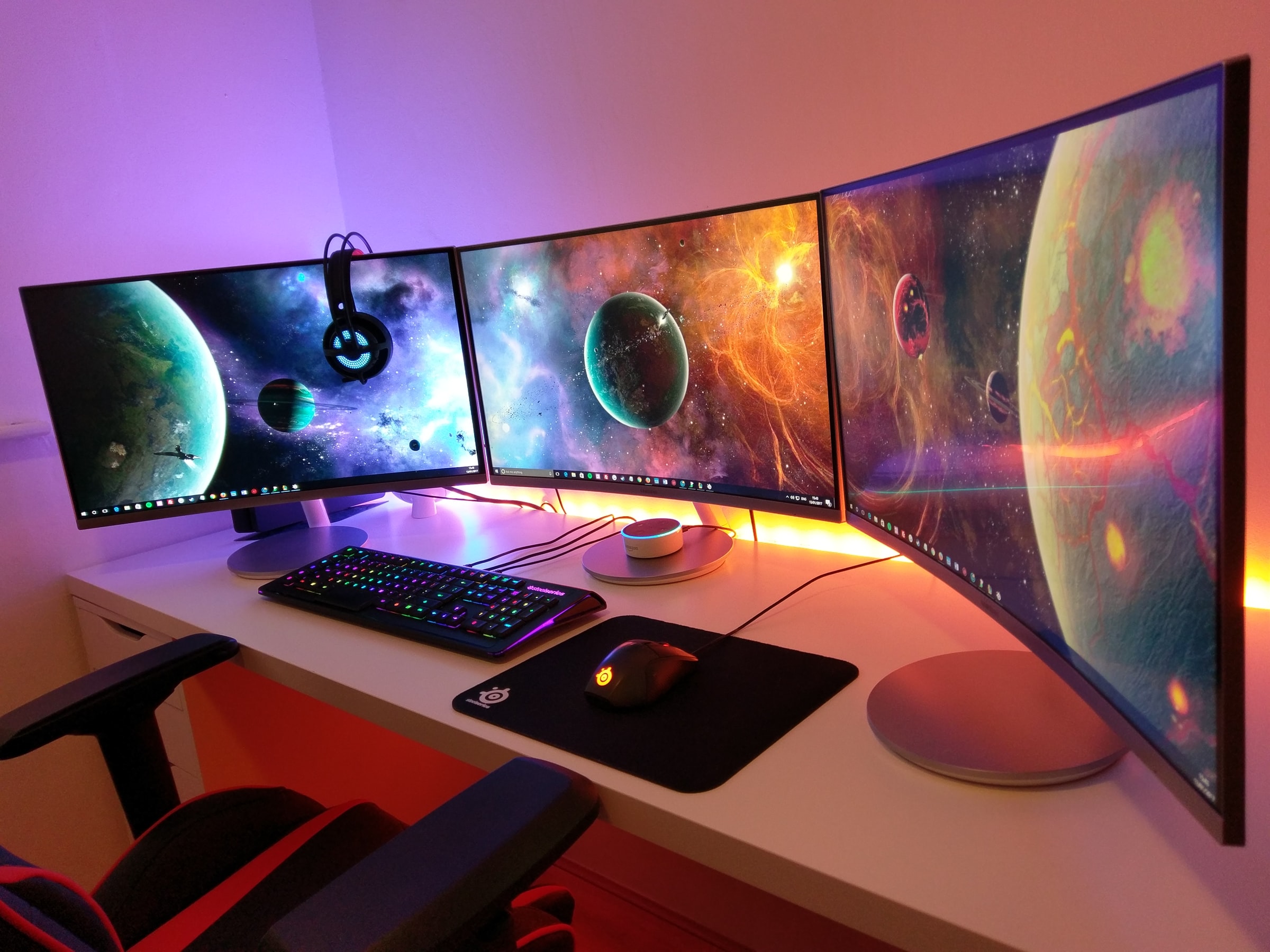
Having your favorite game stuttering and freezing up at the most crucial moments of gameplay can get very old, very fast. By now, you may have heard that overclocking your central processing unit (CPU) or graphical processor unit (GPU) can effectively eliminate any stuttering or freezing you may face.
Checking out a demonstration can help showcase the difference in performance, and the effect can create a noticeable increase in quality. This could be the ultimate gaming modification you have been looking for, all without spending additional money on your rig.
To help you, we’ve compiled a brief overview of the two primary ways to overclock your computer with your CPU and GPU and how it can affect the frames per second (FPS) of your favorite games.
What is Overclocking?
One computation of your GPU or CPU is known as a clock, and one gigahertz (GHz) equals one billion clocks computed in one second. Computer components have a standard clock range in which they operate. By tweaking the parameters higher than the standard rates, you are overclocking the components.
With a higher computational output, this allows video games on your computer to potentially have substantially higher performance than before. It used to be difficult to manually overclock your computer successfully and safely, but now the process is much easier through software.
Necessary Precautions
Before beginning overclocking, you will want to ensure there’s adequate cooling for your system. Often, stock heatsinks alone are often unable to manage the additional heat produced by overclocking.

CPUs have built-in temperature limits before they either throttle down automatically or shut down. This maximum limit is usually set to 100 degrees Celsius.
To view your own PC’s temperatures, you can download free programs such as CPU-Z or HWMonitor.
Video Game Requirements
Before deciding to overclock your GPU or CPU, you need to research what game you are targeting. Some video games are more CPU intensive, while others are more GPU intensive.
For instance, Assassin’s Creed: Origins is more CPU intensive, while The Witcher 3 is more GPU intensive. Figuring this out is crucial to overclocking effectively to achieve high-quality gameplay. If you target the wrong component, you will be far less likely to see improvement.
Computer Specifications
When considering overclocking, there are several computer parts that work in tandem that you must also consider. Creating optimal performance in your computer, when considering pushing past its factory set limits is very important.
Each of these computer parts has a different function, and what they do to help overclocking is outlined below.
The Monitor
The average monitor today displays 60Hz. This means the maximum amount of frames per second on your display will be 60FPS. Suppose your computer is already showing 60FPS consistently.
In that case, you should assess whether or not you need to upgrade to a monitor with a higher refresh rate before beginning to overclock the rest of your rig.
- YOU MAY ALSO LIKE: Cheapest 240hz Gaming Monitors
The GPU
Increasing the clock speed of a GPU can increase FPS, but it also comes with other potential advantages. The GPU aids the CPU in processing heavy graphical components.
This means that overclocking a GPU can increase your overall image quality and the amount of detail you can get out of your games. Furthermore, increasing a GPU’s clock speed can greatly benefit your overall gaming performance.
The CPU
The CPU is the foundation of your entire computer and must be considered when trying to overclock for any video game. Unfortunately, having the highest quality graphics card available does not guarantee the best possible FPS. When a CPU is an older generation class than the GPU, one common problem that can happen is called bottlenecking.
Bottlenecking happens when you overclock your GPU, but the CPU is not able to accommodate the GPU’s increase in performance.
As a result, the expected increase in performance from overclocking does not occur, and the FPS in video games may actually suffer as well. You should evaluate whether or not the CPU can accommodate an overclocked GPU.
The Power Supply Unit
All this power being used demands higher amounts of energy from your Power Supply Unit (PSU) in your computer. Even if you have all of the other necessary components, your power supply may not be able to keep up with the demand.
Before beginning, you should check whether or not your PSU can handle the requirements and demands of overclocking. To do this, online calculators are available for you to input your hardware information. The calculator can then determine the amount of power that will be drawn from your PSU.

- RELATED ARTICLE: Best White PSUs
Optimized Overclocking FPS
A good range for optimal overclocking is anywhere from a 10-15% increase in FPS. For example, if a game is running at 50 FPS, this would increase it to 55-57 FPS. This may seem minimal in theory, but the difference seen in gameplay can be significant.
In an example where a game is running at 120 FPS, you can achieve 140+FPS and utilize your 144hz monitor to its full potential.
When overclocking is practiced responsibly, the effects of degradation on your computer are insignificant. To be able to tweak your settings to get higher quality gameplay at no additional cost is something any avid gamer should experiment with at least once.
FAQs
How do I change the clock speed of my processor or GPU?
By going into your computer’s BIOS setup utility, you can change the speed of your CPU. GPUs often come with an automatic built-in feature to overclock within their graphics card control panel.
To further help you, there are also several online guides available to teach you how to overclock your CPU and GPU yourself.
How do I know the clock speed I am increasing my processor to isn’t unsafe?
Since the processing speed is measured in units by the billions, even a very small change can be significant. For example, if you wanted to change the clock speed from 4.45Ghz to 4.5Ghz, you would be increasing it by 50 Mhz or 50 million clocks.
Therefore, you need to incrementally change the clock speed while testing your video games between each change to find the best balance of power draw and performance.
While monitoring the temperature and game, you can continue to increase the clock speed until you see improvements in the game you are playing.
Your GPU can be increased approximately by a maximum of 10% from the base speed, while your CPU can usually be increased by 100-300mhz from the base speed. Once graphical errors begin occurring in the game, decrease the clock speed until they disappear.
- RELATED READING: Best CPUs Under $200
What are some drawbacks to overclocking?
Overclocking does come with some drawbacks. Heat is the primary response to overclocking; when more power is forced through a computer, it gives off more heat. With the heat comes increased fan speeds needed to cool off your computer.
When pushing hardware to the maximum limits of its capabilities, the fans will get much louder than a normal PC experience. It can also increase the temperature of the overall room. Since it can increase the room’s temperature, it is usually preferred to overclock your rig in a room that is already cool.
In addition, many CPUs and GPUs come with warranties that are instantly voided if you overclock them. Therefore, it is important to check your warranties before beginning to overclock so that you completely understand the ramifications and consequences if something does happen to go wrong.
Is It Worth Overclocking In 2022?
In 2022, overclocking comes with minimal permanent long-term risk when practiced safely and responsibly. Furthermore, overclocking is a fun hobby that can be rewarding and beneficial to your gaming experience, increasing game performance without spending extra money.
On average, you can expect to gain around 10-15% more FPS as a direct result of overclocking your hardware. That means from around 5 to 20-25+ FPS, depending on how much you’re able to push your components, what components you have, your cooling, and the game you play.
Turning up the voltage and maximizing your gameplay has never been easier. Overclocking your PC is a free way to get more out of what you paid for, so try overclocking today and unlock your computer’s full and true potential.
If you have a minute, let us know how successful you were with overclocking your components and if you find this article helpful. If you have a question or need a hand with anything, feel free to comment down below, and we will be more than happy to help you out. We love hearing from you!
Read similar articles on overclocking:

Be the first to comment